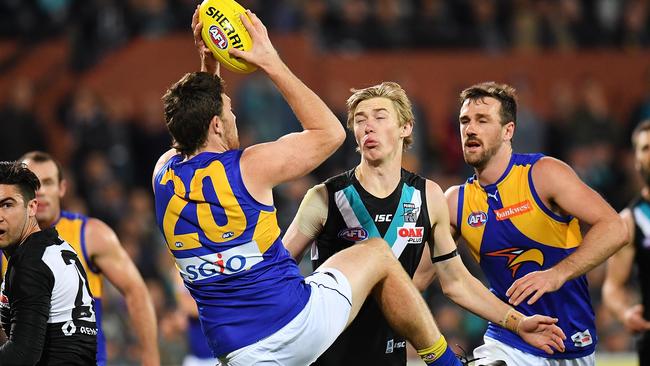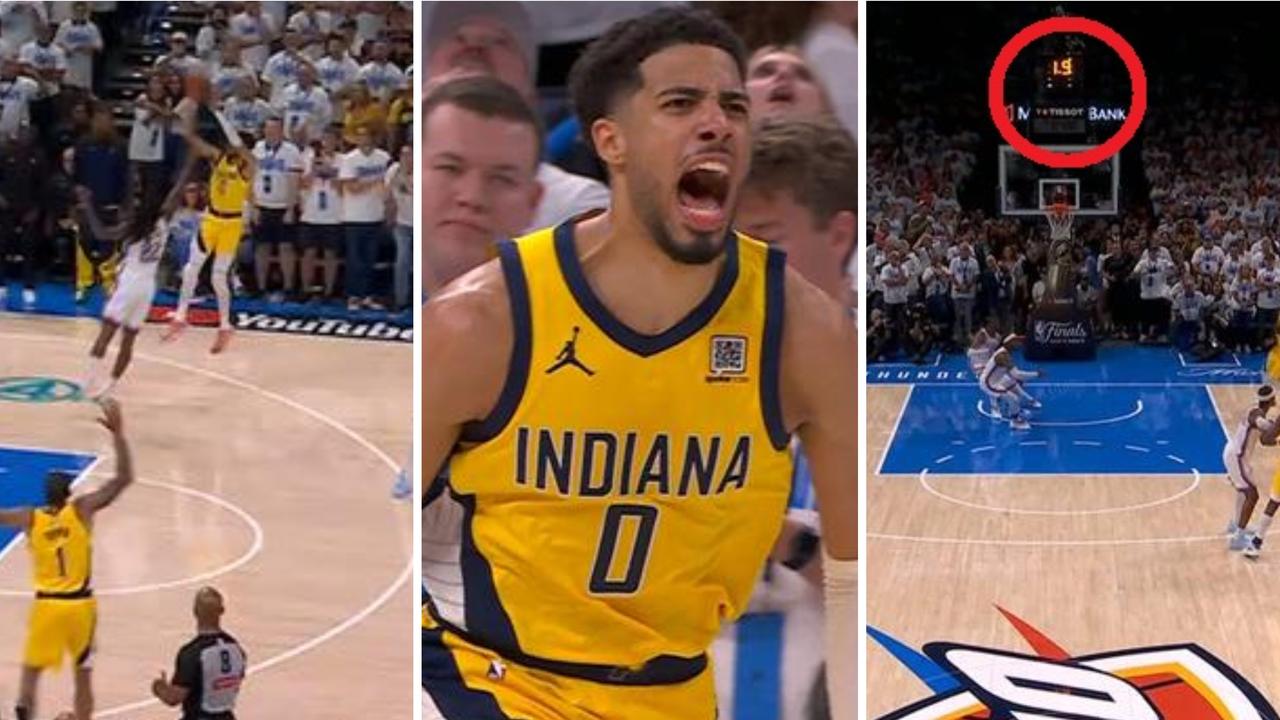Port Adelaide keen to end the ‘ping pong’ that has turned the speed advantage against the Power
PORT Adelaide has found more speed, according to Fremantle coach Ross Lyon. But the Power players believe their strength is in knowing when to not use their pace.

Sport
Don't miss out on the headlines from Sport. Followed categories will be added to My News.
- Chris McDermott’s Team of the Week
- How Port plans to stop Buddy
- Power rankings: The loss that might help Crows
- Bone’s takeaways: Crows, Power player ratings
- Blight: Buddy revives ton of dreams
FREMANTLE coach Ross Lyon reckons Port Adelaide has found new, damaging speed this AFL season.
The funny thing is Power coach Ken Hinkley knows from brutal experience how that line-cutting speed can be a double-edged sword.
In the summer, as Hinkley consulted masters of other sports, he was told there is one danger with playing a fast game to load up his new-look attack: “It can come out as quick as it goes in.”
And Port Adelaide’s young defence cannot afford to face such afterburn on such a fast track as Adelaide Oval ... or anywhere else on the AFL circuit.
While Lyon was noting the Power’s new speed was critical to how his Dockers were crushed in the AFL season-opener at the Oval on Saturday, other scouts in the stands were scribbling another critical point in their notebooks. Port Adelaide has rediscovered “tempo” football. Hinkley’s players have learned when to go slow rather than fast. They know there is an strength to be created in not using their pace.
Power defender Hamish Hartlett, who plays his 150th AFL game this weekend, calls it “controlled ball movement”. He admits the “ping pong” football that came with quick attack and fast opposition rebound could not continue if Port Adelaide was to succeed in its chase of a top-four ranking.
“We’ve been guilty in the past of trying to play ping-pong footy,” Hartlett said. “Up and back; up and back and getting caught in that game. But it is not sustainable.
“We’ve worked on ways to try avoid doing that for the whole game.
“There are times when you do have to play that way. But not always.
“Knowing when and when not comes with the maturity of the group. We’ve been working on that for the last year and a half.”
One game — a 50-point win against a disappointing Dockers unit — is certainly not a big enough sample to know how much Port Adelaide has improved its playbook and its ability to play sounder, speed-controlled football.
In Port Adelaide’s last game of Season 2017 — the extra-time elimination final — that “ping pong” football was costly, particularly when the afterburn rebound was repeatedly launched by West Coast defender Jeremy McGovern.

A resounding win against the other WA-based AFL team six months later certainly is not enough to say the Power has learn to avoid the speed bump at Adelaide Oval.
But the numbers make interesting reading.
Against the Eagles, the Power had a 63-46 advantage on inside-50s. The inside-50s numbers were similar against the Dockers on Saturday — 62-49.
However, the scoreboard results — that critical productivity and efficiency test that will determine Port Adelaide’s success this season — make for a stark contrast.
Against the Eagles, the Power scored 10.16 (38 per cent accuracy). Against the Dockers, it was 16.14 (53 per cent).
With McGovern’s rebound, West Coast put up 12.6 as a winning score. Fremantle was held up to manage 7.8 with more penetration inside-50.
There are bigger tests to come of Port Adelaide’s new understanding of how to work the speed of the game — and its new speed. And there will be greater tests for the Power, particularly from teams with strong slingshot rebound from defence.
michelangelo.rucci@news.com.au
Originally published as Port Adelaide keen to end the ‘ping pong’ that has turned the speed advantage against the Power






